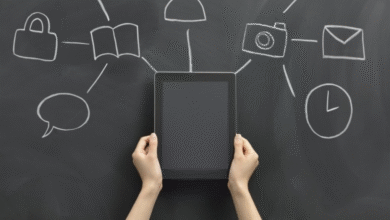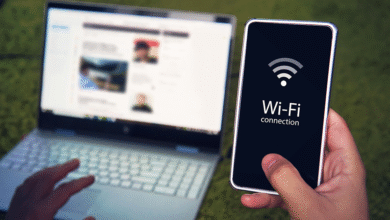How to Keep Your Facebook Account Safe in 2023

Welcome to the future! It’s 2023, and Facebook is still one of the most popular social media platforms in the world. But as we all know, with great popularity comes a greater risk of cyber threats. So, it’s more important than ever to keep your Facebook account safe and secure from hackers and scammers. In this blog post, we’ll be sharing some tried-and-tested tips on how to protect your personal information and stay safe online while using Facebook.
From creating strong passwords to avoiding suspicious links – we’ve got you covered! So let’s dive in and make sure that your Facebook experience remains fun, positive, and most importantly – secure!
How to Set Up Two-Factor Authentication
Assuming you already have a Facebook account, setting up two-factor authentication is pretty simple. Here’s how:
1. Go to your settings by clicking the down arrow in the top right corner of Facebook and selecting “Settings”.
2. On the left side of the page, click “Security and Login”.
3. Under the “Two-Factor Authentication” section, click “Edit”.
4. Select “Require two-factor authentication” and then click “Continue”.
5. Choose how you want to receive your code each time you log in and then click “Continue”. You can choose to receive a code via text message or an app on your phone.
6. Enter your phone number or email address and then click “Continue”. If you chose to receive a code via text message, you’ll be asked to enter your phone number now.
7. A code will be sent to you via text message or the app on your phone. Enter that code into the space provided and then click “Confirm”.
And that’s it! Now every time you log into Facebook, you’ll be required to enter a code in addition to your password, making it much more difficult for someone to hack into your account.
How to Choose a Strong Password
When it comes to choosing a password for your Facebook account, you want to make sure that it is strong and secure. Here are some tips on how to choose a strong password:
– Use a mix of upper and lowercase letters, numbers, and symbols.
– Avoid using easily guessed words or personal information.
– Make your password at least 8 characters long.
– Use a different password for each online account.
– Never share your password with anyone.
– Update your passwords regularly.
How to Use Facebook’s Privacy Settings

Assuming you already have a Facebook account, go to the top right corner of your screen and click on the downward facing arrow. In the drop-down menu, select “Settings”. On the left hand side of the screen, select “Privacy” from the list of options.
The first option is who can see your stuff. By default, this is set to “Friends”, but you can change it to “Public” or “Only Me”. Selecting “Public” means that anyone on the internet can see your posts. If you want to be more restrictive, you can select “Only Me”, which means that only you can see your posts.
The next option is who can contact you. You have three choices here: “Everyone”, “Friends of Friends”, and “Friends Only”. Selecting “Everyone” means that anyone on Facebook (even people who aren’t your friends) can send you messages.
If you want to be more selective, you can choose either “Friends of Friends” or “Friends Only”. With either of these options, only people who are friends with one of your friends will be able to send you messages.
The next section is called “How You Connect”. The first option here is who can look you up using the email address or phone number you provided when you signed up for Facebook. By default, this is set to “Everyone”, but you can change it to either “Friends of Friends” or “Friends Only
What to Do If You Think Your Account Has Been Hacked
If you think that your Facebook account has been hacked, there are a few things that you can do in order to try and fix the situation. First, you should change your password and make sure that it is something that cannot be easily guessed. You should also enable two-factor authentication if it is an option. If you are still having trouble accessing your account, you can contact Facebook directly for help.
How to Avoid Phishing Scams
The best way to avoid phishing scams is to be aware of them. Phishing is a type of online fraud where criminals send emails or texts masquerading as a legitimate company in order to trick people into giving them personal information.
Criminals often use phishing scams to gain access to people’s bank account or credit card information, but they can also use it to steal your login credentials for social media sites like Facebook.
There are a few things you can do to protect yourself from phishing scams:
1) Don’t click on links in emails or texts from unknown senders. If you’re not sure if an email is legitimate, go directly to the website by typing the URL into your browser instead of clicking on the link.
2) Don’t enter personal information into forms on websites that you don’t trust. Look for https:// in the URL and a green padlock icon next to it before entering any sensitive information into a website form.
3) Be suspicious of any email or text that asks you to confirm your login credentials or other personal information.
Legitimate companies will never ask you for this type of information via email or text.
4) Keep your software and antivirus programs up-to-date. This will help protect your computer from malicious software that could be used to steal your personal information.
5) Enable two-factor authentication on all of your online accounts that offer it.
Read More:The Rise of the Metaverse: What It Means for Social Media in 2023
Conclusion
Keeping your Facebook account safe in 2023 will require you to remain vigilant and up-to-date with the latest security measures. Make sure that your password is secure and hard to guess, use two-factor authentication wherever possible, be wary of phishing attacks and malicious links, keep an eye out for suspicious activity on your account and regularly check the Privacy settings page on Facebook.
By following these steps, you can ensure that your Facebook account remains safe even in a world where online privacy has become increasingly important.
FAQs
1. How do I keep my Facebook account safe?
There are a few simple steps you can take to help keep your account safe:
– Use a strong password and never share it with anyone
– Enable two-factor authentication
– Be careful about what you click on and what you download
– Keep your software up to date
– Don’t forget to log out when you’re finished using Facebook




![How to Check IMEI Number on iPhone and Android [2023]](https://www.techknowmad.com/wp-content/uploads/2023/03/How-to-Check-IMEI-Number-on-iPhone-and-Android-2023-390x220.png)






